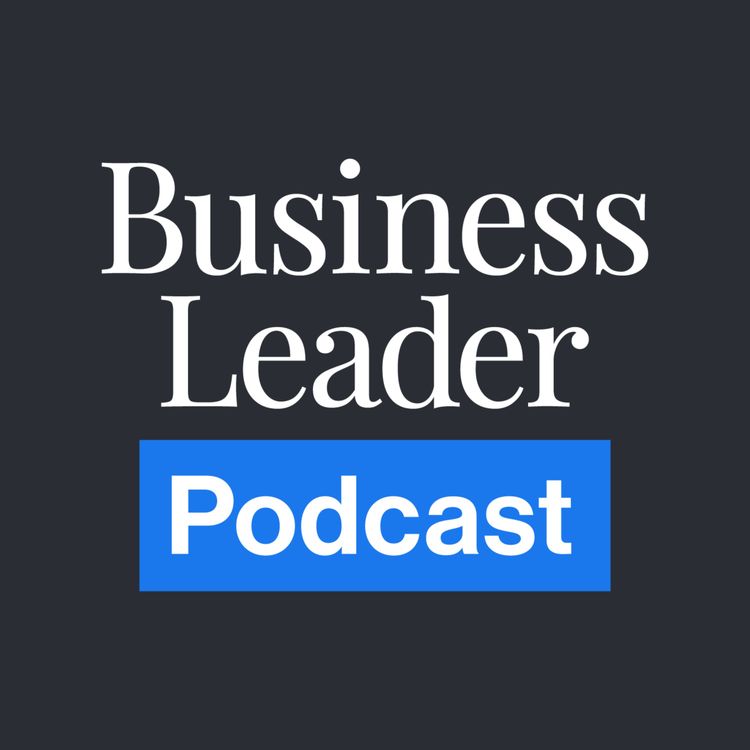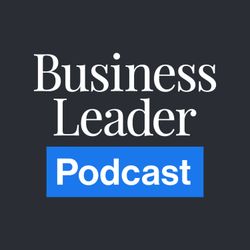Share

Business Leader
Jake Humphrey on why high achievers aren't that different
•
Jake Humphrey has spent years examining the habits of world-class performers. In this episode of the Business Leader Podcast, Graham Ruddick and Josh Dornbrack sit down with the Business Leader columnist and host of the High Performance podcast to find out how you can apply these principles to build high-performing teams and cultures.
From managing confidence to maintaining momentum, he offers practical, powerful insights on what drives long-term success and what most leaders get wrong. We also discuss his new podcast, The Room Where It Happened, which gives insight into the conversations that shaped businesses, offering a rare glimpse into the defining moments of top entrepreneurs and industry leaders.
More episodes
View all episodes

Sanjay Poonen: Getting fired was the best thing to happen in my career
32:50|He leads a US tech firm valued at $8bn, but Sanjay Poonen puts his success down to a major career setback. Poonen is CEO of US cybersecurity and AI company Cohesity, based in Silicon Valley. He grew up in Bangalore, India, but a scholarship to Dartmouth College in the US to study computer science brought him to the US. On graduation, he rose up the ranks of a Who’s Who of Silicon Valley tech companies, including Microsoft, Apple, Symantec, SAP and VMware. It was while he was vice president of marketing at Informatica that he suffered his first major career setback – he was fired. Poonen explains to Dougal Shaw why this moment of rejection ultimately made him a better, more mature and compassionate leader. He also gives advice on how to hire the best talent in the competitive world of tech.
From elite sport to elite business: Bob Skinstad’s journey
39:20|In this episode, host Josh Dornbrack speaks with Bob Skinstad, former Springbok and Rugby World Cup winner, about leadership, elite performance and transitioning from professional sport into business. He shares lessons from rugby, venture capital, consulting and building winning teams in high-pressure environments.
The revival of Debenhams
45:17|The department store chain Debenhams was founded in 1778 but went bust in 2020, leading to thousands of job losses and the disappearance of one of Britain's best-known high street names. But now it is back, reimagined for the digital age. In this episode of the Business Leader Podcast, Debenhams chief executive Dan Finley tells the story behind this turnaround. Dan Finley was appointed the boss of Debenhams in 2022 after the brand was bought by Boohoo. Now he is chief executive of the whole Boohoo group, which has been renamed Debenhams. That has brought its own unique challenges...
Alibaba.com's president explains how AI tools let SMEs access global supply chains
23:13|It’s a magnet for side hustlers around Europe. The CoCreate event was held this November in London, the first time it’s come to Europe. It’s an event run by Alibaba.com, a global online marketplace for b2b wholesale trade. Small businesses use it to source in bulk products from manufacturers and trading companies to then sell to consumers themselves. Alibaba.com is part of Alibaba Group founded by Jack Ma in China in 1999. Alibaba.com now connects 50 million buyers with 200,000 global suppliers, many of them based in China. At CoCreate there are suppliers showing off their wares, including everything from robot vacuum cleaners to skincare products and fashion items. Dougal Shaw spoke to the entrepreneurs who flocked to this event before catching up with Kuo Zhang, the president of Alibaba.com, to find out how small companies can access global supply chains, with AI making the task increasingly sophisticated.
Katharine Viner: The editor taking the Guardian into the TikTok age
34:45|Many prime ministers don’t make it to 10 years in office. US presidents only get eight at most to secure their legacy. Katharine Viner has had a decade and counting as editor-in-chief at the Guardian newspaper. She is also the first woman to hold the role. She’s made radical changes to an institution more than two centuries old, while returning it to profit. Dougal Shaw took a trip to the Guardian HQ in London to learn about the reader revenue model that took everyone by surprise, commercial innovations like The Filter and how she plans to attract younger audiences while navigating the perils of social media.
Viral video to viral brand
46:08|In this episode, Lucie Macloud reveals the unexpected story behind Hair Syrup’s meteoric rise—from a homemade solution shared on TikTok to a multi-million-pound beauty brand. In this episode of the Business Leader podcast, she joins Lucy McPhee and Josh Dornbrack to talk about battling self-doubt, navigating Dragons’ Den, handling explosive growth and learning how to lead long before she felt ready.
Mountain Warehouse and Mark Neale
45:17|The story of how one of the best-known high street chains was built. Mountain Warehouse now has more than 400 shops and generates more than £450m in annual revenue. But, as founder and chief executive Mark Neale tells Graham Ruddick, this story starts with a shop selling roller blades...
Thea Green: The beauty entrepreneur behind Nails.INC
34:17|Thea Green, the founder of Nails.INC, is one of the UK’s most successful entrepreneurs in the beauty and self-care space. Her early background was in journalism, but she spotted a gap in the fashion market back in the late 1990s – and grabbed the opportunity. When the world was crazy about everything “dot com” and coffee shops, she saw that the UK hadn’t caught up yet with the American trend for getting a regular manicure at nail bars. She first built her beauty empire around nail bars on the high street and in department stores. These days she presides over a multi-million-pound retail business that is based on innovative nail products like varnish, art packs and polishes. Last year Nails.INC was acquired by a private equity firm in a reported £30m deal. Thea Green remains at the top of the company she founded. Dougal Shaw went to her HQ in Mayfair, London to learn how she has evolved as a leader and what others can learn from her experience...
The business funding SMEs
35:25|Iwoca is one of the UK's most promising new businesses. It has a fascinating mission - to finance one-million small businesses. Christoph Rieche and James Dear founded Iwoca in 2011 to solve one of the biggest problems facing the UK economy - how to get more funding to small and medium-sized businesses to help them grow. As Christoph Rieche tells Graham Ruddick, they are making real progress, but this is just the start...